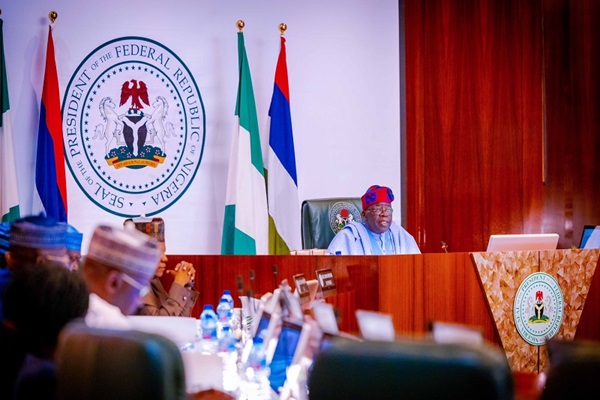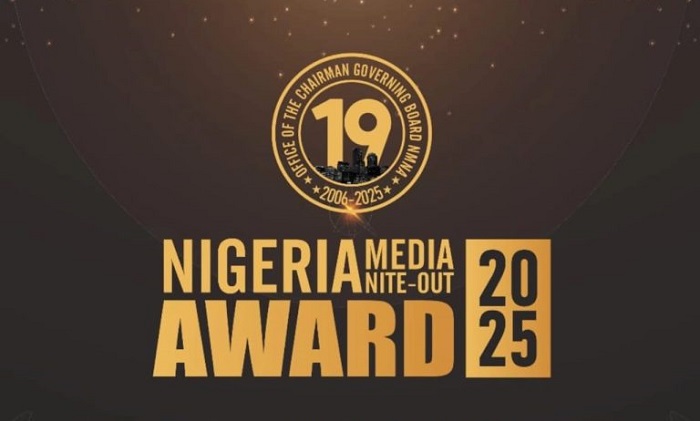
The Federal Executive Council (FEC) on Thursday approved two major external loan facilities totalling $396 million to support critical humanitarian and health projects in Nigeria’s northern region.
FEC also approved the establishment of a Presidential Task Force on “Detty December”, a new federal initiative aimed at positioning Nigeria as a leading global destination for end-of-year tourism and entertainment festivals.
Minister of Finance and Coordinating Minister of the Economy, Wale Edun, disclosed the approval for the loans while briefing journalists at the State House, Abuja, after the FEC meeting presided over by President Bola Ahmed Tinubu.
He said the first facility is a $300 million World Bank credit to support Internally Displaced Persons (IDPs) and host communities across several states in northern Nigeria.
The second approval is for a combined $96 million credit from the Islamic Development Bank (IsDB) and the African Development Bank (AfDB); $50 million and $46 million respectively, for the Sokoto Health Infrastructure Project, to which the Sokoto State Government will also contribute counterpart funding.
“The $300 million World Bank credit is for internally displaced and host communities in various states in the North. The second approval is for the credit from the Islamic Development Bank and the African Development Bank for a total of $96 million to fund the Sokoto Health Infrastructure Project”, Edun explained.
The Minister described the projects as critical to President Tinubu’s Renewed Hope Agenda, aimed at addressing regional disparities, improving access to healthcare, and rebuilding communities affected by conflict and displacement.
Edun also briefed the Council on the state of the economy, noting that the latest data show a strong turnaround driven by reforms in the fiscal and monetary sectors.
“As at the second quarter, the economy was well and truly turned around in terms of growth. Growth was accelerating — over 4.2 percent — while inflation was down to 18 percent,” he said.
He attributed the recovery to the correction of market distortions, exchange rate stabilization, and improved investor confidence.
According to him, critical consumer spending indicators show that Nigerians are spending less of their income on essentials such as food, health, and transport than before.
“People are now spending about 50 percent of their income on basic needs compared to 90 percent before. There is more affordability, and the cost of living is inching downwards,” the minister noted.
Edun further highlighted Nigeria’s recent delisting from the Financial Action Task Force (FATF) grey list, describing it as a “major institutional achievement” that restores Nigeria’s standing in the global financial community and lowers the cost of cross-border transactions.
He said this milestone, combined with the recent oversubscription of Nigeria’s $2.35 billion Eurobond offer, which attracted $13 billion in bids, reflects global confidence in the Tinubu administration’s economic reforms.
“Despite recent political headwinds, investors focused on the fundamentals of the Nigerian economy. We were prudent in our borrowing, not exceeding what was approved or budgeted. The oversubscription shows a resounding vote of confidence in Nigeria”, Edun said.
The Minister also cited Nigeria’s digital identity milestone as a tool for efficient social investment delivery, revealing that the National Identity Management Commission (NIMC) has now issued National Identification Numbers (NINs) to 125 million Nigerians.
“This gives the President and government the flexibility to directly reach and support citizens when needed, using verified biometric and digital systems,” Edun explained.
He reaffirmed that the government’s reform programme is positioning Nigeria as “a stable and attractive investment destination,” noting growing international interest in multiple sectors, including aviation and infrastructure.
“The world is interested in good investments, and Nigeria is now proving to be a stable and attractive climate for such investors,” the minister stated.
Minister of Arts, Culture, Tourism and the Creative Economy, Hannatu Musawa, has announced that Council has approved the establishment of a Presidential Task Force on “Detty December”
Musawa said the Task Force will coordinate federal ministries, departments, and agencies to support Lagos State and other participating states in delivering world-class festival experiences during the “Detty December” period — the popular month-long season of music, arts, and cultural celebrations.
She added that the initiative would serve as a catalyst for the creative and tourism industries, attracting private sector investment and branding Nigeria as a global cultural hub.
Musawa further revealed that the Council approved the establishment of Tourism and Cultural Economic Zones across the six geopolitical zones and the Federal Capital Territory.
These zones, she said, will leverage regional strengths to promote unique cultural and tourism assets.
“Every state, working together with the federal government, will project its cultural and tourism strengths. These zones will be modeled after global success stories like Cancun in Mexico and Al-Ula in Saudi Arabia,” she stated.
The Minister also announced the adoption of national tourism brands such as Naija Season, a year-round celebration of Nigerian festivals developed by the National Council for Arts and Culture (NCAC), as official federal initiatives for tourism promotion.
Another major approval, she disclosed, was the establishment of the Presidential Council on Tourism Promotion and Investment, chaired by President Tinubu, with the Minister of Arts, Culture, and Tourism serving as vice chair.
The Council, which reactivates an earlier framework from 2023, will coordinate inter-ministerial efforts to attract investment and enhance Nigeria’s global image as a stable, peaceful, and united nation.
“This Council will build Nigeria’s positive global image, showing our unity and stability to the world. A secretariat will be established in our ministry to drive this agenda”, Musawa said.
The minister also highlighted the FEC’s endorsement of the Intellectual Property (IP) Policy and Legal Framework, developed jointly by the Ministries of Industry, Trade and Investment; Justice; and Arts, Culture, and Tourism.
The policy, she said, will enable creatives to use their intellectual property as collateral for financing and unlock private-sector funding for the creative industry.
“This is a game-changer. It will allow our creatives to monetize their ideas, protect their works, and access credit based on their intellectual property. Bigger and better days are ahead for Nigeria’s creative economy”, Musawa said.



